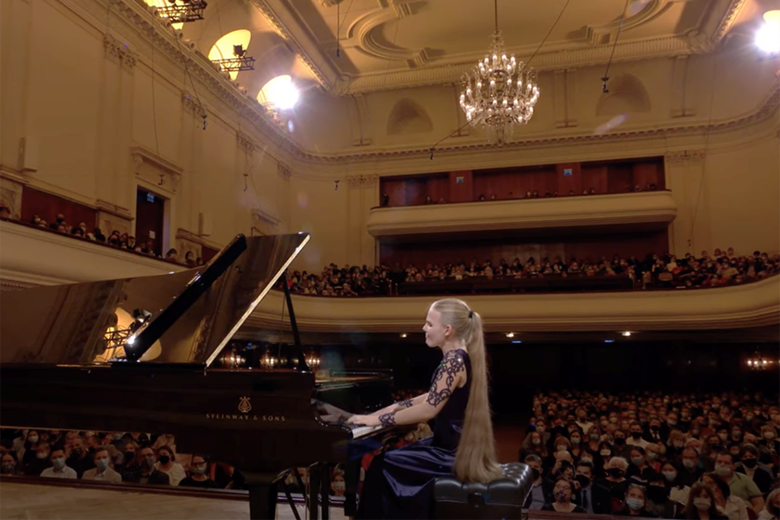The Chopin Competition, day nine: programme choices
Jed Distler
Tuesday, October 12, 2021

As the competition’s second stage progresses, I’m paying more attention to the ‘what’ and possible ‘whys’ of programme choices. Take 25-year old Italian pianist Michelle Candotti, for example. Her segment replicated the contents and running order of her recent Ferrara recital’s opening half.
Candotti was wise to ‘test drive’ these pieces, so to speak, before facing a jury who’s heard and played it all. Experience and poise evidently informed her ideal tempos and ability to impart palpable shape and fluency to the F minor Fantasy and F sharp minor Polonaise. Indeed, she nailed the latter’s central mazurka section to wonderfully idiomatic effect. Superb readings of the F minor Nocturne Op 55 No 1 and the required Waltz (the pianist chose the E flat major Op 18) filled out the set.
A student of 1980 Chopin Competition Gold Medalist and 2021 jury member Dang Thai Son, the Taipei-based Kai-Min Chang also began his segment with the F minor Fantasy. His relatively introspective and exploratory reading proved less secure compared to Candotti’s, although it improved in the final pages. But the pianist’s all-over-the-place F major Waltz Op 34 No 3 worried me. And it takes a more insouciant spirit to bring off the early and episodic Op 1 C major Rondo’s potential for charm than Chang’s relatively literal-minded approach allowed.
Federico Gad Crema was the first second-stage candidate to pair the two Op 26 pieces as their Polonaise option. Yet why would he place these pieces at the end, while starting off with the Polonaise-Fantasie? It surely makes better musical sense to do the opposite.
Sticking within stage two’s minimum repertoire and duration requirements, Alberto Ferro came up with an unusually well-constructed and contrasted playlist: first, the upbeat E flat Waltz Op 18; this was followed by the epic and complex F minor Ballade; lastly, the Andante spianato and Grande Polonaise brillante, a showpiece through and through. But Ferro’s straightforward, uncluttered interpretations held less interest, in contrast to his splendid new Piano Classics album devoted to the complete Schubert/Liszt Soirées de Vienne (which my colleague Patrick Rucker reviewed in the September issue of Gramophone).
All five evening competitors grabbed my attention during their first rounds, and basically confirmed their strengths. In other words, no surprises. Yasuko Furumi was steady and consistent, while Alexander Gadjiev continues to be an explorer and risk taker: one needs courage and nerve to end on a quiet note with the Second Ballade. Avery Gagliano’s limpid touch transformed the Andante spianato and Grande Polonaise brillante into something less heroic than we’ve generally been hearing over the past few days, although her E major Nocturne Op 62 No 2 floated and soared. If Gagliano works in pastels, Martín García García applies primary colours. Finally Eva Gevorgyan cannily framed the three Op 34 Waltzes between her expectedly solid traversals of the Third Ballade and the F sharp minor Polonaise. Onwards!
Gramophone is a Media Partner of the 18th Chopin Piano Competition - you can follow the competition by watching the live stream at the chopin2020.pl - and visit us every day for more analysis from Jed Distler.








